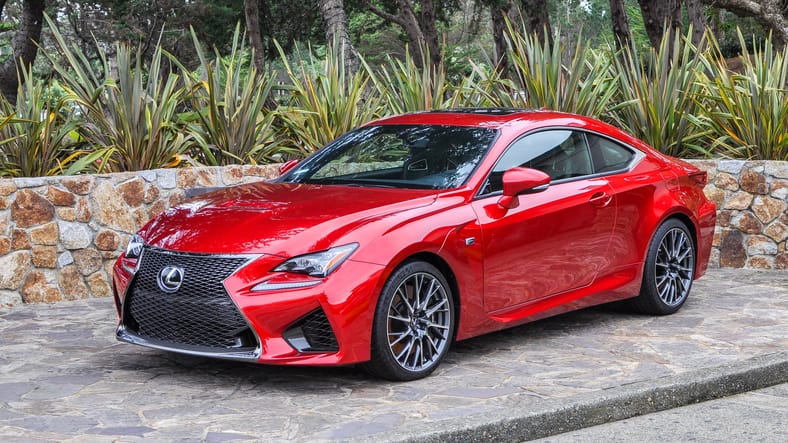From Opulence to Innovation: How Luxury Cars Have Transformed (2000s vs. Today)

The allure of luxury cars has captivated drivers for over a century. These havens on wheels have traditionally been defined by opulent materials, powerful engines, and a sense of exclusivity. However, the landscape of luxury cars has undergone a significant shift in the 21st century, driven by technological advancements, environmental concerns, and evolving consumer preferences. Let's delve into the fascinating transformation of luxury cars, comparing the priorities of the 2000s with the cutting-edge features of today.
The Hallmarks of 2000s Luxury: Power and Prestige
The early 2000s were a time of excess in the luxury car market. Brands like Mercedes-Benz, BMW, and Lexus competed fiercely, offering vehicles that prioritized horsepower and in-your-face opulence. Large, V8 engines were commonplace, delivering exhilarating acceleration but often at the expense of fuel efficiency.
Interiors were adorned with lavish wood paneling, plush leather upholstery, and an abundance of chrome accents. The focus was on creating a sense of grandeur, with features like built-in DVD players and moonroofs adding to the luxurious feel. Safety features, while present, were not as sophisticated as they are today.
The Rise of Technology and Efficiency
The latter half of the 2000s saw a turning point. Concerns about rising fuel costs and environmental impact began to influence the luxury car market. Manufacturers started incorporating more fuel-efficient technologies like turbochargers and hybrid powertrains. This shift offered a solution – retaining the thrill of performance without compromising on fuel economy.
Technology also began to play a more prominent role. In-car entertainment systems evolved, offering touchscreens, navigation, and Bluetooth connectivity. Advanced driver-assistance systems (ADAS) like adaptive cruise control and lane departure warning started making their way into luxury vehicles, enhancing safety and providing a semi-autonomous driving experience.
The Defining Features of Today's Luxury Cars
The luxury car of today is a complex blend of power, efficiency, technology, and personalization. While the desire for a thrilling driving experience remains, a focus on sustainable performance has emerged. Plug-in hybrids and electric vehicles (EVs) are now offered by most luxury brands, catering to environmentally conscious buyers.
Furthermore, the concept of luxury has transcended mere opulence. High-quality, sustainable materials like recycled leather and wood are gaining popularity. Technology is at the forefront, with luxury cars boasting advanced infotainment systems featuring massive touchscreens, voice recognition, and seamless smartphone integration. ADAS has become even more sophisticated, offering features like automatic emergency braking and lane-keeping assist. These advancements significantly improve safety and contribute to a more relaxed driving experience.
Personalization: The New Frontier of Luxury
Today's luxury car buyers crave a personalized experience. Manufacturers are offering a wider range of customization options, allowing buyers to tailor their vehicles to their specific preferences. This can include everything from choosing interior colors and materials to selecting performance upgrades and technology packages.
The rise of digital showrooms and online configurators further empowers buyers, allowing them to explore customization options and visualize their dream car before stepping foot in a dealership.
A Look Ahead: The Future of Luxury Cars
The future of luxury cars is likely to be shaped by continued advancements in technology, a focus on sustainability, and an even greater emphasis on personalization. Autonomous driving features are expected to become more prevalent, offering a truly hands-free driving experience. Additionally, the integration of artificial intelligence (AI) is on the horizon, potentially creating personalized driving experiences and offering predictive maintenance suggestions.
Sustainability will remain a key driver of innovation. Advancements in battery technology are likely to lead to longer range and faster charging times for EVs, making them even more attractive to luxury car buyers. The use of sustainable materials will continue to expand, further reducing the environmental impact of these vehicles.
Conclusion: A Refined Experience
Luxury cars have come a long way since the horsepower-focused days of the early 2000s. Today, they offer a refined experience that blends exhilarating performance with efficiency, cutting-edge technology, and unparalleled personalization. This shift reflects the evolving priorities of luxury car buyers, who are increasingly environmentally conscious and seek a tailored driving experience that complements their lifestyles.
As technology continues to evolve and sustainability becomes an even greater priority, the future of luxury cars promises to be an exciting one, filled with innovation and a focus on creating a truly personalized experience for every driver.
